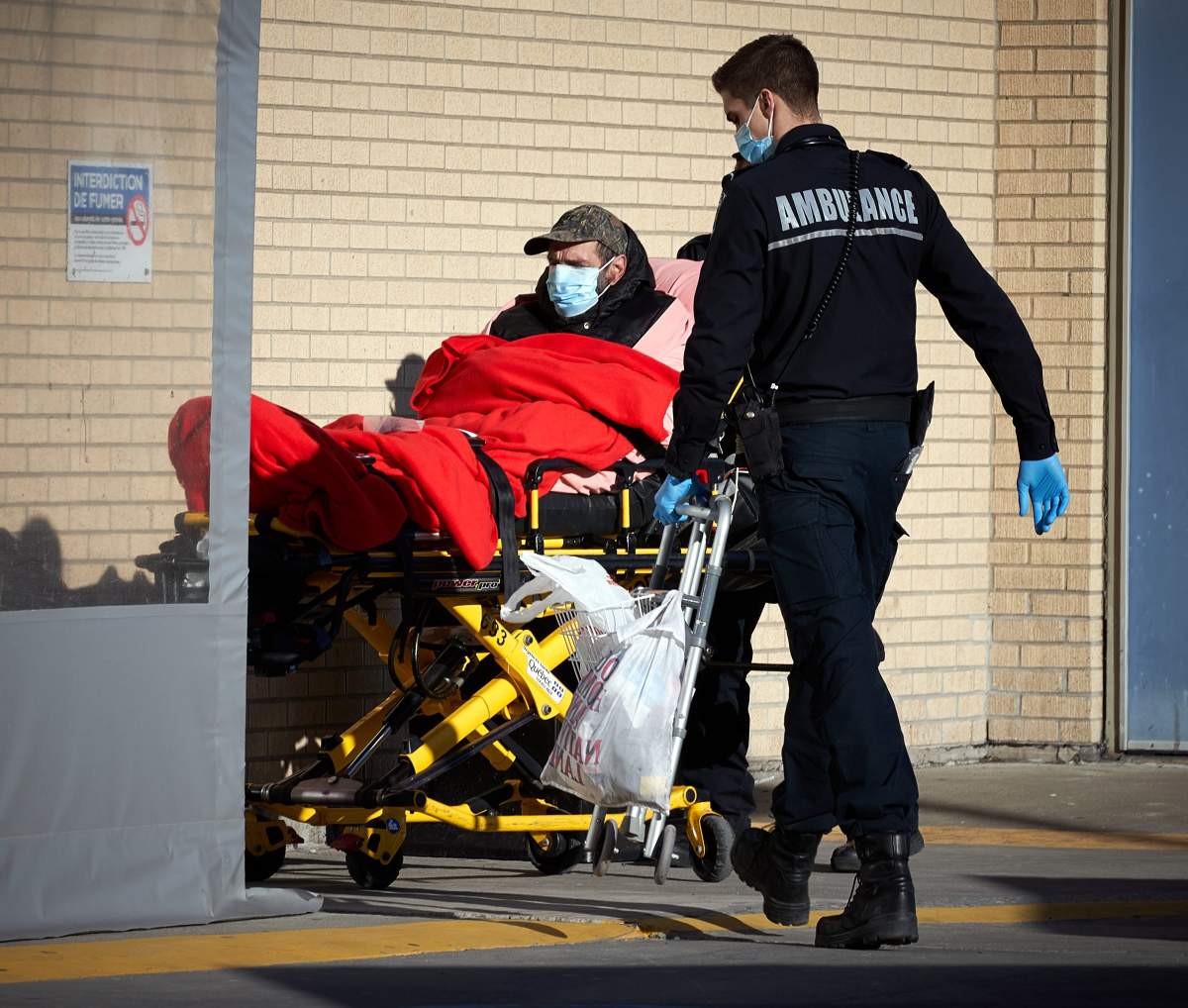Emergency rooms in Greater Montréal have been struggling with serious staff shortages during the COVID-19 pandemic.

On Monday, the province and paramedics announced an agreement that they believe will help relieve the pressure in the Montérégie area.
About 20 paramedics affiliated with the Coopérative des techniciens ambulanciers de la Montérégie (CETAM) will lend a hand at some emergency rooms in the South Shore, including the Anna-Laberge hospital and the Suroît Hospital in Salaberry-de-Valleyfield.
The province signed a decree Monday morning expanding paramedics’ jobs to include being able to work inside a hospital.
Paramedics will help in the ER with tasks such as administering medicine and taking vital signs.
“It’s a refreshing announcement for our health network,” said Quebec’s health minister Christian Dubé.
“We’ve been asking the network to look at new ways of doing things, best practices and one of them that was sitting on the table somewhere was the use of paramedics.”
For now, the Montérégie-West and Montérégie-Centre health authorities will benefit from the help.
Quebec’s emergency rooms have been struggling to keep up with demand as 4,000 nurses are missing from work and COVID-19 hospitalizations continue to put pressure on the network.
The crisis was so severe last month that the Suroît Hospital’s ER had to close for a night because they didn’t have enough staff to care for patients.

Get weekly health news
Valérie Bélanger, a spokesperson for CETAM says they are happy to be able to lend a hand where needed, given they have enough staff and the knowledge to do so.
“I’m really happy about that. It’s really enthusiastic for the people on the road ’cause we have a lot of knowledge and experience and we will be able to use it in the hospital, not only for the ambulance,” Bélanger said.
“It’s amazing news because we want to help the health system too. We know it’s really hard in this moment.”
Paramedics affiliated with the Confederation of National Trade Unions (CSN) said they were very surprised by the announcement, since they weren’t consulted.
They note that there is already a shortage of paramedics in some regions and fear this will make the situation worse.
“How will this ministerial decree be applied within this context?” said Jean Gagnon, the CSN’s pre-hospital sector representative at the Fédération de la santé et des services sociaux (FSSS—CSN).
“Clearly without us being consulted, certain threads weren’t properly tied together. We invite the health minister to sit down with us and discuss this in an informed way.”
Meanwhile, Urgences-santé, the public emergency medical service for the Island of Montreal and Laval, says they can’t participate in the program.
“Montréal and Laval can’t send paramedics, 40 per cent of 911 calls are for us,” said Stéphane Smith, a spokesperson for Urgences-santé.
“We are focusing on fulfilling our demand.”
Smith adds that the service has contributed to helping out during the pandemic through various initiatives, including performing 25,000 COVID-19 tests and vaccinating their own staff.
“It’s a beautiful initiative for the Montérégie and as paramedics we are very proud that we can help. If the south shore can do it, that’s great.”
Dubé says he hopes the initiative encourages other heads of health authorities to consider it.
“I hope that this way of looking at things here in Montérégie-West and Montérégie-Centre will provide some excitement to the other PDGs,” the minister said.
“I’m relying on the PDGs. This health network has been managed by the top only and I want some initiatives done at the local level.”
Paramedics who are participating in the program will start working Sunday for a five-month period.









Comments
Want to discuss? Please read our Commenting Policy first.